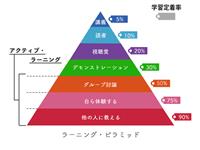Lecture 2
Why China Missed the Industrial Revolution?
Purpose:
? Try to understand the factors that contributed to China
missing the Industrial Revolution … This would account for
the fact of why China was one of the richest countries in
the world in 1500 and far ahead of Europe, but by 1900
was one of the poorest nations in the world and had fallen
far behind Europe and some of its European dominated
colonies …
? Understand the importance of technology innovation and
the role of science in the innovation process in economic
development.
Plan for Today:
I. China versus Europe before 1500 AD / 1900
II. Explanations of why China missed the Industrial
Revolution – Demand-side hypotheses (NOT)
III. Population, Science and Innovation (building
block of theory)
IV. Explanations of why China missed the
Scientific Revolution – Supply-side hypotheses
(SOME HYPOTHESES NO and OTHERS
PLAUSIBLE)
A. China versus Europe before 1500 AD
China Europe
____________________________________
before 1500 AD
Environment
Booming Mkts Subsistence
Unified Empire City States and Manors
Bureaucracy Thousands of fiefdoms
Meritocracy Titles Inherited
High yielding Serfs on common fields
Irrigated Ag.
Private property
High yields Low yields
Technology Advanced NOT
gun powder moats
compass draw-bridges
paper lances
printing
iron production (150K tons) iron production (<30K tons)
cosmopolitan cites NOT
“This is the greatest palace that ever was” [Marco Polo
speaking of the Imperial Palace in Beijing]
The Glories of Kinsay (today’s Hangzhou)
A. China versus Europe, 1900
China Europe
____________________________________
1900
Dirt Poor Ruled the World
Dominated with Little Resistance
II. Explanations of why China missed the
Industrial Revolution – Demand-side
hypotheses (NOT)
? inadequate capital markets [no]
? savings=30%
? banks / many informal lending institutions
? capital available even in 1930s when land-man ratio
worse
? no markets [no: fantastic markets]
? lack of entrepreneurship?
-- system of bureaucracy + meritocracy,
killed entrepreneurial spirit
Lack of entrepreneurship?
? Let’s ask some Ming/Qing residents:
– Rich merchant (rich and involved in trading of silk)
– Factory owner (involved in silk production at home / limited
personal capital)
– Vice magistrate for a county (deputy emperor)
– Bright pupil and parents (fledgling genius)
? Offer from an agent from Macao:
“I have a new way of producing silk that could greatly cut costs, improve
quality and make you immensely profitable … wanna invest?”
Lack of Entrepreneurship?
“I don’t think so!” [who said this? … SDR]
? most popular demand-side hypothesis
? China was victim of its own success:
with irrigation and high fertility and peace,
land to man ratio very low … therefore, the
demand for capital intensive technological
change was not there as in Europe
(remember, industrialization took off after
the Plague had reduced population and
wages rose and there was an incentive to
create industrial firms with relative capital
intensive technology …
High-level Equilibrium Trap
Assumptions of High Level
Equilibrium Trap
? Is the hypothesis true?
? Depends on assumptions:
? But, many of assumption of the hypothesis
are questionable:
a. One assumption is that all technological change is capital
intensive / labor saving … no, way, often land saving [e.g.,
Japan during the 1900s] …
b. There was no room for capital to improve incomes and
output in a labor intensive society … capital is often
complementary to labor … looms were adopted in many
economies that have lots of labor / technology that allows more
intense use of land involves capital (e.g., tractors allows for
double cropping) …
c. China experience the same size of, if not larger, fall in
population [Ghengis Khan and rule of the Mongolians] as in
Europe … if it was large enough to trigger an Industrial
Revolution in Europe, it should have been large enough in
China .. [see figure 1 in Lin].
Summary
? so, demand side hypotheses look for reasons
why China’s people did NOT want to use (or
demand) new technologies …
? what are the main reasons?
? supply-side hypotheses look for reasons why
they were not able to develop (or supply) new
technologies
III. Population, Science, and Innovation …
? To understand Lin’s hypothesis, it is important to
understand how progress in the world is made
… the most important source of sustained
growth is: innovation … [more than 90% of US
growth since 1900 is from innovation …]
? More basic question to answer why China was
so far ahead in 1500 but why it missed the
Industrialization Revolution is what have been
the sources of technological change
Model of Technological Invention
[see Lin, figure 2]
? In pre-modern times, it comes from
genius/tinkerers discovering breakthroughs …
and taking advantage of higher productivity from
new inventions, given the current stock of
scientific knowledge and resource base …
? In pre-modern times, the pace of invention was a
function of population … since China had a
larger population (twice the size of Europe), it
had more inventions and was the most
advanced country in the world …
Model of Technological Invention – 2
[see Lin, figure 2]
? With science, the knowledge stock pushes invention
distribution to the right … and the scope for making
invention rises … the Scientific Revolution in modern
times allowed for Scientists and Experimental methods
to do two things: shift science stock to the right at a
faster pace / make invention breakthroughs at a faster
pace …
? Since Europe made the breakthrough in the Scientific
Revolution first (alla Galleo et al.), they were able to
greatly accelerate the rate of accumulation of Science,
which greatly accelerated the rate of technological
change, which gave Europe its lead …
? SOME HYPOTHESES NO and OTHERS PLAUSIBLE
? #1. Needham: Bureaucracy that let China flourish, provide no
incentives to its members search for or accept the new ideas and
breakthroughs and gains that came from the Science and Technology
… they were happy enough with the Imperial salary … Europe, on
the other hand, did not have such a bureaucracy … they had profit-
oriented manor lords and their relatives …
do you believe this?
Explanations of why China missed the
Scientific Revolution
Supply-side hypotheses
Lack of entrepreneurship?
? Let’s ask some Ming/Qing residents:
– Rich merchant (rich and involved in trading of silk)
– Factory owner (involved in silk production at home / limited personal
capital)
– Vice magistrate for a county (deputy emperor)
– Bright pupil and parents (fledgling genius)
? Offer from an agent from Macao:
“I have a new way of producing silk that could greatly cut costs, improve
quality and make you immensely profitable … wanna invest?”
? So: Needham’s explanation – like the high
level equilibrium trap hypothesis – is
probably not valid …
? But there are other supply side hypothesis!
Supply-side Hypothesis #2
? #2. China’s Confucian ideology was anti-technology
(stressed human relations) and since there was only one
state, with an all powerful Emperor who was not
motivated by making more money from science, it could
enforce the anti-technology bias, while Europe had all of
the small city-states that were competing against each
other
[NO: this is an anachronistic view of China as this huge,
unified, all-powerful state … actually, China has always
been very decentralized and there are lots of examples
of how pre-modern technological breakthroughs were
adopted and propagated …]
Supply Side Hypothesis #3
? #3. Lin’s hypothesis of Why China missed the
Industrial Revolution ..
– Agrees with Needham that it is a question of
explaining why China did not embrace Scientific
Revolution … [why was Leonardo daVinci Italian?]
– Science relies on knowledge of math and
experimental methods
– A system was needed to build human capital in the
population .. in Europe this happened in the local
universities … these were missing in China
Lin’s hypothesis, continued
? Because of history of bureaucracy / meritocracy … the
gifted in China had fewer incentives than their European
contemporaries to acquire the human capital required for
modern scientific work … they wanted to qualify for the
bureaucracy … this meant they had to pass the civil
service exam …
? Competitive civil service exams required an
ENORMOUS effort to pass … 6 years just to memorize
nearly 500,000 characters .. [that gets you into first
grade] … then many times more … [had to memorize the
equivalent of 6 NY telephone books – verbatim … or 30
Davis telephone books!] … all of this material was on
philosophy / history and literature … NONE on science
or math …
? Once they passed the exam, they became busy officials
[i.e., they got a job] and had no time to devote to
studying math or science …
Conclusion of Lin
? THEREFORE: this was the constraint:
incentive system created by the specific form of
China’s civil service exam and officialdom, fewer
gifted people in China than Europe acquired the
human capital necessary to launch China’s
scientific revolution … with no scientific
revolution, there was no industrial revolution …
and, China, a country that was the richest in the
world in 1500, turned into one of the poorest in
Eurasia by 1900 …
And an added insight by Scott
? I think we also need “plat-tectonics”
? Why didn’t China import technology AND run the
meritocracy system?
? Shut down oceanic trade … pirates … tried to
ignore them …
? Years of isolation … left China with no modern
army to fight Europeans … they tried to hide …
look more at this next time!
| 课件名称: | 加州大学:发展经济学在中国(英文版) |
| 课件分类: | 经济 |
| 课件类型: | 电子图书 |
| 文件大小: | 10.46MB |
| 下载次数: | 5 |
| 评论次数: | 3 |
| 用户评分: | 7 |
- 1. 加州大学:发展经济学在中国(英文版):lectur10
- 2. 加州大学:发展经济学在中国(英文版):lecture 8
- 3. 加州大学:发展经济学在中国(英文版):lecture1
- 4. 加州大学:发展经济学在中国(英文版):lecture2
- 5. 加州大学:发展经济学在中国(英文版):lecture3-china-century
- 6. 加州大学:发展经济学在中国(英文版):lecture4-china-famine
- 7. 加州大学:发展经济学在中国(英文版):lecture5
- 8. 加州大学:发展经济学在中国(英文版):lecture7-1
- 9. 加州大学:发展经济学在中国(英文版):lecture9





